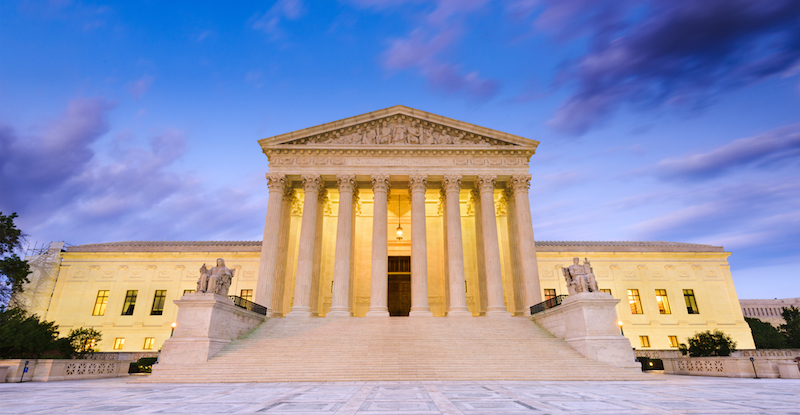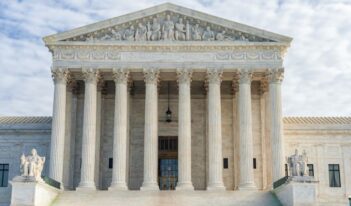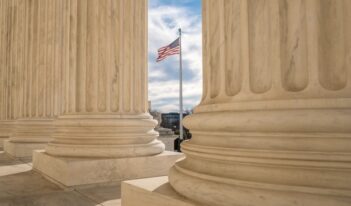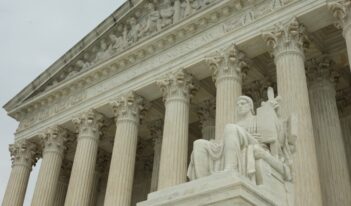
Contrary to criticisms, Auer deference does not encourage agencies to self-delegate.
The U.S. Supreme Court yesterday granted review in a highly-anticipated case that squarely presents the question of whether a well-established administrative law doctrine called Auer deference—also known as Seminole Rock deference—should be overruled. This moment has been a long time coming and the Court’s decision may at first seem pre-ordained. But if the Court proceeds to overrule Auer, it will be acting on the basis of a wildly speculative hunch that is contradicted by the best evidence available. This method is no way to design administrative law.
Auer deference is not necessarily a household name, but the principle it represents is straightforward: It holds that informal agency interpretations of regulations are to be upheld so long as they are not plainly inconsistent with the regulatory text. These informal interpretations come in a variety of forms, but they share a key characteristic—none of them need to go through the burdensome notice-and-comment rulemaking process. So long as an agency operates by interpreting a pre-existing rule that likely did go through the notice-and-comment process, the Administrative Procedure Act allows the agency to skip that process. Auer deference gives agencies some assurance that their good faith interpretations of existing regulations will be respected by reviewing courts, alleviating pressure to undergo costly rulemaking each time a new problem arises.
The critique of Auer deference is also rather straightforward—even if ultimately ungrounded in evidence. As John Yoo and James C. Phillips recently claimed, critics charge that Auer deference “motivates agencies to maximize their power by promulgating ambiguous regulations.” This prediction about how agencies will behave stems from a highly reductive theory about alleged incentives for agencies to “self-delegate” because they possess both rule-writing and rule-interpreting power.
As Harvard Law School Dean John Manning put it in his seminal article on the subject, “If an agency issues an imprecise or vague regulation, it does so secure in the knowledge that it can insist upon an unobvious interpretation, so long as its choice is not ‘plainly erroneous,’” at least so long as Auer is the law of the land. With Auer, “the incentive is to speak vaguely and broadly, so as to retain a ‘flexibility’ that will enable ‘clarification’ with retroactive effect,” reasoned the late Justice Antonin Scalia in a 2013 opinion. (Justice Scalia, who in the years prior to his death became Auer’s biggest critic, actually wrote the unanimous opinion in Auer v. Robbins in 1997.)
The case for overruling Auer depends on the promise of an easy fix: Eliminate the perverse incentives by replacing Auer deference with de novo review by the courts and agencies will write more clearly.
Widespread acceptance of the behavioral theory underlying the Auer critique has driven the Supreme Court’s recent interest in reconsidering Auer deference. But there is a major problem that should steer the Justices away from overruling Auer deference. The problem is that there is no evidence of any kind to support the fears about self-delegation.
The theory that Auer’s critics offer, though, is a testable hypothesis about how agencies behave. By any standard, since the critics want to change the status quo, they should bear the burden of establishing that untoward behavior occurs with enough regularity that it justifies wholesale revision of settled law. Instead, the behavioral theory advanced by Auer’s critics has taken on a life of its own, with the critics failing to offer even one concrete example of an agency deliberately crafting a vague regulation to increase the agency’s subsequent interpretive discretion.
Moreover, empirical research actually indicates that Auer has had no effect on agencies’ rule-writing behavior. In a forthcoming article in the Columbia Law Review, I report findings from my application of computational linguistics methods to track the degree of vagueness to agency rules after exposure to Auer. I approach the measurement question carefully, using a variety of validated text-based measures. For instance, one such measure comprises an index of paradigmatically vague legal terms, such as reasonable, appropriate, and prudent.
Applying the multiple measures to over 1,200 economically significant rules from 1982 to 2016, I find that agencies wrote no more vaguely after Auer was decided in 1997. I likewise find no evidence that agencies’ win rates under Auer or their exposure to Auer-related litigation in federal court had any impact on the clarity and specificity of their rules. In fact, if anything, the evidence suggests that agencies on the whole have been writing with greater clarity since Auer’s profile has grown.
These findings only serve to reinforce what we already know about how agencies operate. The critique of Auer vastly oversimplifies the incentive structures that agencies face and overlooks countless pressures pushing agencies toward clarity in their rules.
Agencies have a choice when they write rules. They can forgo clarity now in favor of flexibility later, or they can lock in meaning now and increase the costs of interpretive change later. But that choice is not affected by Auer alone. Future uncertainty—about who will be in control of the administration, among many other variables—plays no role in the critics’ theory of self-delegation, even though in reality it has a profound effect on agencies.
Similarly, agencies that seek to induce voluntary compliance by regulated entities have less hope of doing so if they write vague, open-ended rules. They also face a greater risk of “hard look review” of their rules if they attempt to hide the ball. After all, it is difficult to offer reasoned evidence supporting non-committal regulatory language.
In addition to factors such as these suggesting that rational rule writers would favor clarity now over discretion later, insights from behavioral economics would suggest that agency rule writers, like the rest of us, tend to prefer short-term benefits to long-term dividends. This too can explain why agencies favor clarity in the here-and-now over any supposed long-term payoff from self-delegation via the drafting of vague rules.
Simply put, the critique of Auer deference is devoid of any empirical basis. If nothing else, the burden of proof should shift and Auer’s critics should be expected to come forward with evidence demonstrating that self-delegation is more than just a fanciful possibility. Until then, the Supreme Court should hold its hand. Facts do matter.




